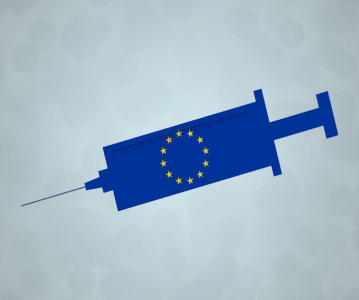Room for specialists and one-stop-shops in CDMO space

As CDMOs seek to diversify their business models, is a full-service offering the holy grail or is there a danger of biopharmaceutical outsourcing firms becoming the jack of all trades and the master of none?
For CDMOs the customer is always right. And this is a challenge because drug industry demands are as varied as they are complex. In short, one size definitely does not always fit all.
In general, contractors try to meet these demands either by offering a broad range of services, covering everything from process development through to fill-finish – so-called “one-stop-shops” - or they specialize in an effort to carve out a niche.
Diversity
Both approaches have potential advantages for customers but choosing whether to work with a one-stop-shop or a specialist should depend on the specifics of the project and type of product being made, says George Ntoras, partner at Fuliginous Management Consulting.
“For conventional products like small molecule tablets, liquids, even injectable products, which usually are less complex and less expensive compared to biologics, it’s easy for a CDMO to offer everything in house.
“So, since it is relatively easy, competition has forced CDMOs to go towards the one-stop approach. And this is something that is appreciated by pharma companies outsourcing their products.”
Contract management
The one-stop-shop model is particularly useful for pharmaceutical companies looking to outsource multiple small molecule drug products, Ntoras says, because of the opportunities to simplify supplier management.
“Imagine for example a pharma company that has 20 products to outsource. If there is a one-stop-shop offer approach for all products, the maximum number of CDMOs that it will have to handle is 20 assuming that every product goes to a different contractor.
“If on the other hand, for each product, the pharma company has to split the activities to 2 steps and different CDMOs, then the maximum number of CDMOs that it will have to handle is 40. So, complexity is higher.”
Complex products
For biopharmaceutical products – the production of which is usually more complicated, requiring different specialist skills at various stages of the process – the one-stop-shop model may not always be suitable.
“For Biologics, cell and gene therapies, vaccines, antibodies etc, where things are much more complicated and expensive, it might make sense to split some activities if a specific CDMO is dedicated to these and can perform them better and at a better cost,” Ntoras says.
However, in recent years, some larger CDMOs have developed sufficient expertise across multiple aspects of biopharmaceutical manufacturing and, according to Ntoras, such propositions may be worth considering.
“The risk for the pharma company in biologics is much higher and amounts paid for developing and producing a product can be maybe five to ten times higher than conventional products. But, if a reliable CDMO can perform everything in house and at good quality and price, then in my opinion he has an advantage vs someone that cannot.”
Cost is always a consideration, Ntoras says: “Usually, one stop offer shop refers to development and manufacturing. So, if a pharma company can find one CDMO that can do both, it is easier and usually cheaper.”
Multiple markets
Larger, one-stop-shop CDMOs can also help to provide drug developers with access to emerging markets more easily that smaller, focused specialists, says Achim Newrzella, vice president of consulting organisation, Results Healthcare.
“Western CDMOs have mainly used manufacturing footprint in emerging geographies to supply Western customers at a lower cost base, but we are seeing a gradual shift away from this,” he says. “For example, Lonza is expanding injectables fill/finish capacity at its Guangzhou biologics site in China that will be used to supply exports as well as the domestic market and Recipharm recently announced the establishment of a new fill/finish facility in Morocco with significant investment from the government to supply vaccines and biotherapeutics to Africa.”
Newrzella cites China as an example of a market where demand for one-stop-shops is increasing, particularly from developers of advanced products.
“China in particular now presents an interesting opportunity for biologics CDMOs since the country relaxed regulation in 2015/2016 that previously required biopharma to manufacture biologics in-house.
“This has opened the door for biologics contract manufacturing, and we have seen significant investment from a number of multi-national CDMOs such as Lonza, which opened a facility in 2020, Boehringer Ingelheim which opened a plant in 2016 and expanded in 2019 and WuXi Biologics, which has ten sites in China with a further eight globally.”
Newrzella also points to South Korea as a market suited to CDMOs with a broad service offering, citing investments by companies like Samsung Biologics, SK Group and Daewoong Pharma as evidence of growing demand.
“South Korea is another country that is strongly pushing its CDMO industry in an attempt to become a leader in high-tech manufacturing for biologics and cell and gene therapies.”
M&A motivations
And the desire for market access is likely to drive the formation of more broad-offering contractors thought mergers and acquisitions, according to Newrzella.
“CDMOs generally see the US market as still having the highest potential for business development both in terms of the number and size of opportunities,” he says. “We are continuing to see European – and to some extend Asian – CDMOs looking to expand into the US market, either through M&A or establishing of a local commercial office/business development team.”
He adds that Western CDMOs are also currently enjoying additional opportunities from repatriation of manufacturing activities from Asia in an effort to ‘regionalise’ medicines supply in response to supply chain issues that resulted from the COVID-19 pandemic.
Beyond manufacturing
The popularity of the one-stop-shop model is further illustrated by the fact some services firms are taking it to its logical conclusion and expanding beyond manufacturing.
For example, in April Thermo Fisher Scientific announced its intention to buy contract research organisation (CRO) PPD. At the time the firm framed the deal, worth a reported $20 billion plus, as part of an effort to become a full-service pharmaceutical outsourcing provider that started with its acquisition of Patheon in 2017.
Similarly, in February and May, US contract research firm Charles River bought Cognate BioServices and Vigene Biosciences, on each occasion citing a desire to provide a “comprehensive” range of services as the key motivation.
The future
So, for the right project, the one-stop-shop model makes sense from a complexity, cost and contract management standpoint.
However, in Ntoras’ view, the diversity of therapies in drug industry pipelines means there will always be demand for the services of smaller, more focused CDMOs.
“I also believe that specialists will continue to exist, since there are products and activities in the market that are complex and need specific experience and knowhow.”
Related News
-
News Patients vs Pharma – who will the Inflation Reduction Act affect the most?
The Inflation Reduction Act brought in by the Biden administration in 2022 aims to give better and more equitable access to healthcare in the USA. However, pharma companies are now concerned about the other potential costs of such legislation. -
News CPHI Podcast Series: What does the changing US Pharma market mean for industry and patients alike?
In this week's episode of the CPHI Podcast Series Lucy Chard, Digital Editor for CPHI Online is joined by James Manser to discuss the political and market changes in the US pharma field. -
News CPHI Barcelona Annual Report illuminates industry trends for 2024
The CPHI Annual Survey comes into it’s 7th year to report on the predicted trends for 2024. Over 250 pharma executives were asked 35 questions, with their answers informing the industry landscape for the next year, spanning all major pharma marke... -
News Which 10 drugs are open to price negotiation with Medicare in the USA?
The Centres for Medicare & Medicaid Services, under the Biden administration in the USA, has released a list of the 10 drugs that will be open to price negotiations as part of the new legislation under the Inflation Reduction Act (IRA). -
News EU Medical Devices Regulation causes unintended disappearances of medical devices for children, doctors state
Doctor groups and associations have appealed to the EU to correct the EU Medical Devices Regulation law that may cause unintended shortages of essential drug and medical devices for children and rare disease patients. -
News 10 Major Drug Approvals So Far in 2023
Last year, 37 novel drugs were approved by the FDA, this was a high number for such a category, and covered many fields including oncology, demonstrating how promising further research is, and how it is only continuing to build. To date, there are alre... -
News Detecting Alzheimer's disease with a simple lateral flow test
A novel rapid diagnostic test for early-stage Alzheimer's disease has been developed using a biomarker binder from Aptamer Group along with technology from Neuro-Bio, the neurodegenerative disease experts. -
News CPHI Podcast Series: outsourcing and manufacturing trends
Listen to the CPHI Podcast Series this June to hear Gil Roth of the PBOA speak with Digital Editor Lucy Chard about the biggest trends and topics to watch in pharma outsourcing and manufacturing at the minute.
Position your company at the heart of the global Pharma industry with a CPHI Online membership
-
Your products and solutions visible to thousands of visitors within the largest Pharma marketplace
-
Generate high-quality, engaged leads for your business, all year round
-
Promote your business as the industry’s thought-leader by hosting your reports, brochures and videos within your profile
-
Your company’s profile boosted at all participating CPHI events
-
An easy-to-use platform with a detailed dashboard showing your leads and performance







